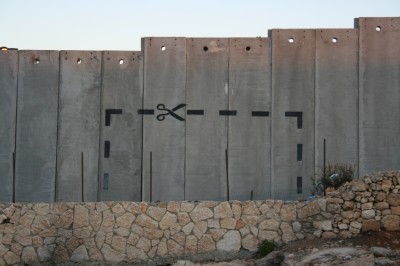Remaining Silent About Suffering Bethlehem…

As we enter the final week before Christmas, my thoughts turn to Bethlehem, its struggling people, and the shocking disregard for them displayed by many Christians in the West.
In the story that’s 2,000 years old, we are told of how Mary and Joseph, living under Roman occupation, were required to travel to Bethlehem to enrol in a mandatory census. Because the town had become overcrowded, they could not find housing and were forced to stay in a cave where Mary gave birth to Jesus.
The story has been romanticised in song and poetry that have come to define our understanding of that “quiet little town”, the manger where Jesus was placed, the angels, shepherds, and “wise men from the East” who came to praise the birth and bring gifts to the newborn.
Today, Bethlehem is surrounded by dozens of Israeli settlements, many built on land confiscated from Bethlehemites. It is cut off from much of the West Bank by two Israeli bypass roads and a massive concrete wall. And just this month, Israeli Prime Minister Benjamin Netanyahu announced plans to advance a new settlement that, when built, will completely sever Bethlehem from nearby Jerusalem.
The resultant loss of land, the growing impoverishment of its citizens, and the hostile actions of Israeli occupation forces and settlers have forced many Bethlehemites to leave their beloved city and homeland.
To most in the West, Palestinian Christians are simply invisible. To conservative Christians, they are at best a nuisance who stand in the way of their unquestioning ideological attachment to Israel.
I saw this up close during my four-year tenure as a presidential appointee to the US Commission on International Religious Freedom. As a Lebanese Maronite Catholic, who had travelled throughout the Middle East, I was aware of concerns of Christian communities in the region.
In December 2013, my third month on the commission, the staff circulated a draft opinion piece that was to be sent to newspapers.
It began:
“As we enter the Christmas season, Christians look joyously ahead to celebrating Christ’s birth in a manger. But across parts of the Middle East, the cradle of Christianity, followers of Jesus are under siege and live in fear, facing a rising tide of repression, intimidation, and violence…Unless circumstances change, some are pondering the unthinkable: Will Christianity survive in the area of its origin?”
The piece went on to devote full paragraphs to the plight of Christians in each of the following countries: Egypt, Iraq, Syria, Iran, Nigeria, and Pakistan.
I had to act quickly before a majority approved and the article would be sent out. I, therefore, wrote in response:
“How on earth can we publish an article about the plight of Christians in the Holy Land without even a mention of the concerns of the Christians in Bethlehem … and Jerusalem, etc. They too are suffering – losing their lands and ability to survive under harsh occupation. The wall, the settlement construction on confiscated Bethlehem land, and the closure of Jerusalem are choking these cities and forcing their residents to leave.”
Some of my fellow commissioners reacted with indignation. How dare I criticise Israel? Didn’t I know that Israel protects Christians and allows them to prosper? And didn’t I know that the problems facing Christians in the Holy Land are the result of Muslims?
After a number of further exchanges, they agreed to add a single disturbingly “no fault” sentence:
“In Bethlehem, birthplace of Jesus, many Palestinian Christians, who are part of a small and diminishing minority, feel marginalised and insecure.”
The next year, I invited the Catholic Patriarch of Jerusalem to address the commission. He had come to Washington seeking help on a number of issues, including stopping Israeli plans to confiscate church lands to build the barrier wall. The route for this section of the wall would separate a monastery from its vineyards and a convent and Christian children from their school. Not only did his appeal fall on deaf ears, but he and I were both shocked when two commissioners bizarrely upbraided him for not using his position to challenge Hamas!
The shocking disregard for human rights and religious freedoms is what allows Israel’s behaviour towards Palestinian Christians to continue. As a result, Bethlehem is being strangled and its people are in pain.
And this shameful silence continues. On this Christmas Day, the very conservative Christians who will sing of Bethlehem and tell the story of what happened in that city long ago will remain willfully blind to the current reality of that place and its people.
*
Note to readers: please click the share buttons above or below. Forward this article to your email lists. Crosspost on your blog site, internet forums. etc.
Featured image: The wall at Bethlehem, photo by “Delayed Gratification” on Flickr

